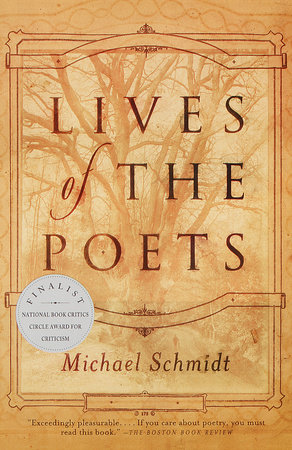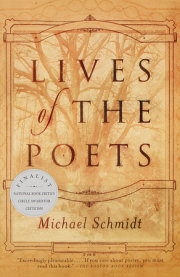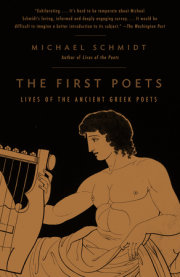While the Irish football team played the Soviet Union in 1988, four English poets were confined in a radio studio in Dublin -- it was the Writers' Conference -- to take part in a round-table discussion. English-language poets, that is, for none of them accepts the sobriquet "English" and one has vehemently rejected it. In the chair was an anglophone Mexican publisher, me.
First of the four was Russian. Joseph Brodsky, a Nobel Prize winner, was attempting that almost possible Conradian, Nabokovian transition from one language to another, writing his new poems directly in English. Jet-lagged and impatient to return to the soccer, he expressed strong opinions on politics, religion, poetry and sport. In his essays he has argued that, as imperial centers corrode and weaken, poetry survives most vigorously in remote provinces, far from their decaying capitals. One thinks of Rome. Now that the British and American claims to the English language have loosened, the art of English poetry continues to thrive. The bourse may still be in the publishing centers of London or New York, but the shares quoted there are in poetic corporations with headquarters in New South Wales, St. Lucia, County Wicklow . . .
There is a triumphalism in this line of argument: emancipation. The post-colonial is as much a fashion in literature as the Colonial is in home decoration. Brodsky might have conceded (he did not) that ethnicity, gender and sexual preference can themselves be provinces or peripheries in which, even at the heart of the old geographical centers of empire, poetry can grow. It is an art that thrives when language itself is interrogated, from the moment John Gower challenged himself, "Why not write in English?" to Wordsworth's asking, "Why not write a language closer to speech?" to Adrienne Rich's asking, "Why write in the forms that a tradition hostile to me and my kind prescribes?" History and politics can play a part: they propose questions. In poetry the answers come not as argument but as form.
Over a century and a half ago America began to establish its independence, kicking (as Edgar Allan Poe put it) the British grandmama downstairs. Early in this century Scotland began to reaffirm its space, and Ireland too, a space that is firstly political and then cultural. We can speak of sharing a common language only when we possess it, when it is our language rather than theirs. For the Jamaican poet and historian Edward Kamau Braithwaite the English of the educational system in which he was raised, the English of the poetic tradition, is theirs. For many black writers in the United States in the 1950s and 1960s, it was theirs. For working-class English writers such as Tony Harrison, it was theirs. When writers interrogate language, they set themselves one of two tasks: to reinvent it, or to take it by storm and (as the novelist Gabriel García Márquez puts it) "expropriate it," give it to the people, often for the first time. "I hate relegation of any sort," says Les Murray. "I hate people being left out. Of course, that I suppose has been the main drama of my life -- coming from the left-out people into the accepted people and being worried about the relegated who are still relegated. I don't want there to be any pockets of relegation left."
A time has almost come -- the round-table discussion was early evidence of it -- to speak unapologetically of a common language, at least for poetry. Instead of affirming separation and difference, we can begin to affirm continuity -- not only geographical but historical, analogies and real connections between Eavan Boland and Alfred, Lord Tennyson, Allen Ginsberg and William Blake, John Ashbery and Thomas Lovell Beddoes, Thom Gunn and Ben Jonson, Elizabeth Bishop and Alexander Pope. The story that includes all poets can be told from the beginning.
The second poet in the studio that afternoon was Derek Walcott, born in Castries, St. Lucia, in 1930, of a West Indian mother and an English father.
I'm just a red nigger who love the sea,
I had a sound colonial education,
I have Dutch, nigger, and English in me,
and either I'm nobody, or I'm a nation.His was a francophone and Roman Catholic island; he is from an English-speaking Methodist culture. "Solidarity" is not the issue for him that it has become for Brathwaite. He distinguishes between English, his mother tongue, and the form he used at home, his mother's tongue. He might have courted approval had he chosen to affirm himself in terms of race, but he chose instead to identify himself with all the resources of his language. After all, English wasn't his "second language." "It was my language. I never felt it belonged to anybody else, I never felt that I was really borrowing it." In a poem about the shrinking back of empire, he writes, "It's good that everything's gone except their language, which is everything." "They" have left it and now it is his. Shakespeare, Herrick, Herbert and Larkin belong to him just as they would to an English person.
There's no point in denying the violence and dislocations of colonialism, but if, given what history has already done, a writer responds by rejecting the untainted together with the tainted resources . . .
The third poet at the table was Seamus Heaney. Born in the north of Ireland, he has complained of being "force-fed" with "the literary language, the civilized utterance from the classic canon of English poetry." At school, poetry class "did not delight us by reflecting our experience; it did not re-echo our own speech in formal and surprising arrangements. Poetry lessons, in fact, were rather like catechism lessons."
He has tempered his views since he wrote of the "exclusive civilities" of English. At the round table he declared that the colonial and post-colonial argument is "a theme; it's a way of discoursing about other things, to talk about the language. It's a way of talking about being Protestants and Catholics without using bigoted, sectarian terms, it's a way of talking about heritage. But the fact of the matter is that linguistically one is very adept." He remembers as a child with "the South Derry intonation at the back of my throat" being able to hear, as he read, even though he could not speak it, the alien and beguiling intonations of P. G. Wodehouse. Language can be a medium of servitude; but it can also -- properly apprehended -- become a measure of freedom. "A great writer within any culture changes everything. Because the thing is different afterwards and people comprehend themselves differently. If you take Ireland before James Joyce and Ireland fifty years afterwards, the reality of being part of the collective life is enhanced and changed."
The fourth poet, the Australian Les Murray, is a witness to the abundance of the English language and to the freedoms it offers. Born in 1938 in Nabiac, rural New South Wales, he was an only child and grew up on his father's dairy farm in Bunyah. His mother died when he was a boy. In solitude he developed a close affinity with the natural world. Australia is a predominantly urban society; Murray is thoroughly rural. In 1986 he returned to Bunyah to farm, to live with the poetry of gossip, what he calls "bush balladry," and to work for "wholespeak." He takes his bearings, emblematically, from Homer and Hesiod: the arts of war and of peace (Hesiod's Works and Days embodies the principles of permanence, while the Odyssey with its endless wandering and a world subject to strange metamorphoses, and the Iliad with its sense of social impermanence and conflict, illuminate the principles of change).
A voice exists for every living creature, human or beast. It is one of the poet's tasks to listen and transcribe: the voice (the diction, syntax and cadence) of the cow and pig, the mollusk, the echidna, the strangler fig, the lyre bird and goose, the tick, the possum, "The Fellow Human." The past is included in the present, and the fuller its inclusion, the less likely relegation will be. Murray works toward an accessible poetry, telling stories, attempting secular and (he is a Roman Catholic) holy communion. An anti-modernist, he might respond to Ezra Pound's commandment "Make it new": "No, make it present."
Four writers in English with different accents and dialects, detained in a small recording studio in Dublin, deprived of the big match, all more or less agreeing on the integrity of their art, its place in the world, and on the continuities that it performs. Released at last (the match, alas, was over), the poets returned to Dun Laoghaire for dinner. Their conversation was raucous: a competition of salty tales and limericks ("There was a young fellow called Dave / Who kept a dead whore in a cave"). Neighboring tables tutted and simmered, and a literary critic from Belfast in her indignation reported the poets' boisterous manners back to the
Times Literary Supplement.
A time has come to speak unapologetically for a common language and to speak a common language of poetry. Almost.
Copyright © 1999 by Michael Schmidt. All rights reserved. No part of this excerpt may be reproduced or reprinted without permission in writing from the publisher.





